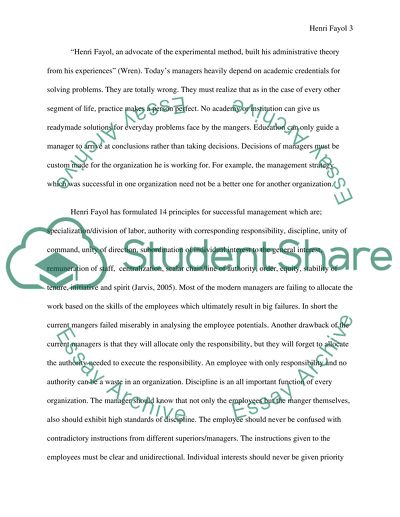Cite this document
(“Henri Fayol Essay Example | Topics and Well Written Essays - 500 words”, n.d.)
Retrieved from https://studentshare.org/miscellaneous/1556094-henri-fayol
Retrieved from https://studentshare.org/miscellaneous/1556094-henri-fayol
(Henri Fayol Essay Example | Topics and Well Written Essays - 500 Words)
https://studentshare.org/miscellaneous/1556094-henri-fayol.
https://studentshare.org/miscellaneous/1556094-henri-fayol.
“Henri Fayol Essay Example | Topics and Well Written Essays - 500 Words”, n.d. https://studentshare.org/miscellaneous/1556094-henri-fayol.


